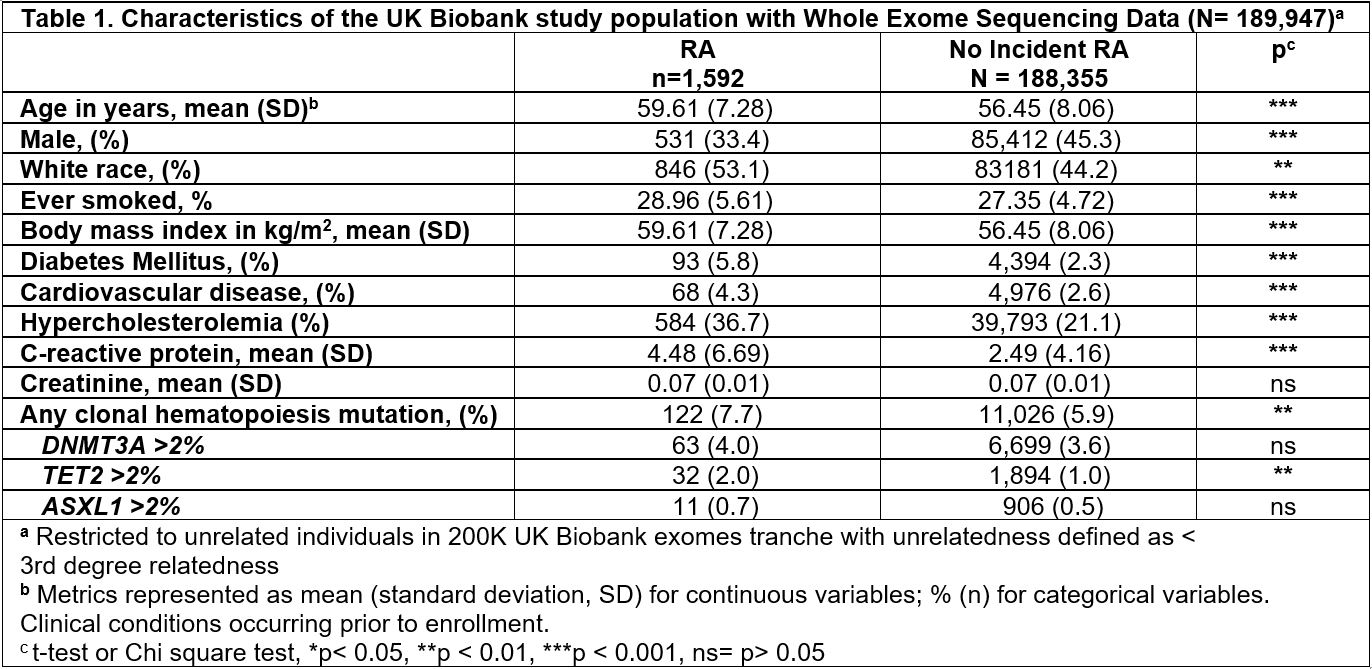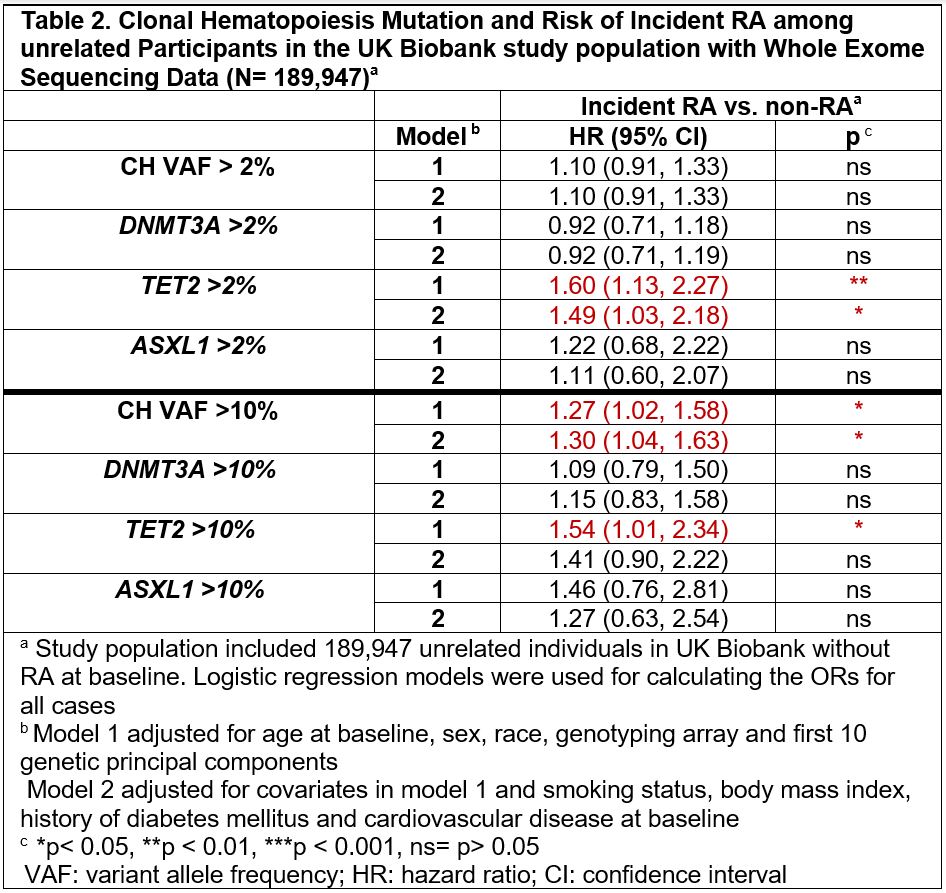Session Information
Session Type: Abstract Session
Session Time: 2:00PM-3:30PM
Background/Purpose: Clonal hematopoiesis (CH), the clonal expansion of somatically mutated blood cells in people without hematologic malignancy, is found in ~10% of people age ≥ 70 years. CH genetic mutations confer selective advantage to stem cells. Several have been associated with aging and increased production of inflammatory cytokines, as well as with increased risk of cardiovascular disease (CVD) and malignancy. In population studies, somatic mutations in the epigenetic regulatory genes DNMT3A, TET2, and ASXL1 predominate. We hypothesized that CH may be related to risk of rheumatoid arthritis (RA), which increases with age and is characterized by systemic inflammation.
Methods: We tested this hypothesis in the UK Biobank Exomes dataset. The UK Biobank prospective study consists of 502,543 adults recruited 2006-2010 from 22 UK centers. All participants provided consent for linkage to medical records and blood samples. At baseline visit, demographic and clinical variables were collected, as was blood for DNA. Both genome-wide genotyping and whole exome sequencing (WES) were performed on ~ 200,000 participants’ DNA. We identified the 3 most common CH somatic mutations: DNMT3A, TET2, and ASXL1. We assessed both variant allele fraction (VAF) > 2% and >10%. We identified RA by a validated billing code algorithm and tested associations with incident RA (individuals without prevalent RA and not taking any RA disease-modifying drugs at enrollment). We compared baseline characteristics of individuals who developed incident RA to those who did not. Cox regression models estimated hazards ratios (HR) for incident RA according to the presence of the 3 most common CH mutations. Model 1 adjusted for baseline age, sex, race, and 1st 10 genetic principal components. Model 2 additionally adjusted for baseline smoking, body mass index (BMI), CVD, and type 2 diabetes.
Results: We studied 189,947 unrelated individuals in UK Biobank without RA at baseline and identified 1,592 who developed incident RA. Table 1 shows the baseline characteristics of those with and without incident RA. Those with incident RA were more likely to be female, more frequently reported a smoking history, had higher median BMIs, and were more likely to have prevalent CVD, type 2 diabetes, and hypercholesterolemia. TET2 mutations were present in significantly higher proportions of the incident RA population. Table 2 presents the results of adjusted regression models: TET2 (VAF >2%) was associated with increased HR of developing RA (model 1 HR 1.60 [1.13, 2.27]). Further adjustment for lifestyle risk factors and comorbidities was associated with attenuated HR for RA (model 2 HR 1.49 [95%CI 1.03, 2.18]). Having TET2 mutation with VAF >10% was also associated with increased RA risk (model 1 HR 1.54 [1.01, 2.34]).
Conclusion: The CH mutation TET2 may be related to risk of RA, as it is for other diseases of inflammation and aging. As TET2 increases interleukin-1beta (IL-1β) expression in mouse models, it may accelerate RA onset. TET2 CH may also be related to the increased risk of cancer and CVD among patients with RA. These findings are being pursued and analyses replicated in other cohorts.
To cite this abstract in AMA style:
Costenbader K, Yu Z, Oakes E, Robinette M, Agarwal M, Truong B, Uddin M, Bick A, Niroula A, Solomon D, Natarajan P. TET2 Clonal Hematopoiesis and Incident Rheumatoid Arthritis: Results from the UK Biobank [abstract]. Arthritis Rheumatol. 2023; 75 (suppl 9). https://acrabstracts.org/abstract/tet2-clonal-hematopoiesis-and-incident-rheumatoid-arthritis-results-from-the-uk-biobank/. Accessed .« Back to ACR Convergence 2023
ACR Meeting Abstracts - https://acrabstracts.org/abstract/tet2-clonal-hematopoiesis-and-incident-rheumatoid-arthritis-results-from-the-uk-biobank/


